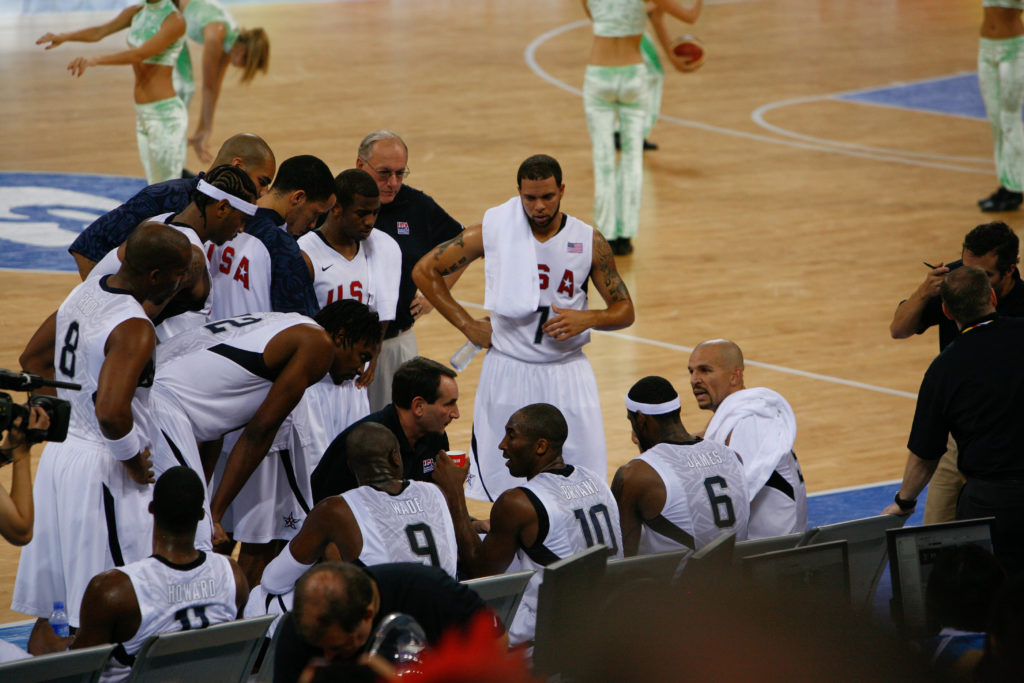
Here we are nearly 20 months into COVID and there’s no industry-wide consensus about regathering back at the station, sticking with WFH, or operating in a hybrid system. In some cases, these decisions have been dictated by market size and the severity of the virus in the area. But in others, company heads have had to make difficult calls, balancing myriad variables.
While we may not know how radio’s collective workforce will be deployed a year from today, we do know that station culture (or company culture, or that matter) has taken a hit during the pandemic. At some point, managers from all departments will have to consider morale, support, and other issues that impact a station’s esprit de corps.
Pre-COVID, creating a strong culture was an aspiration. Now, it’s an imperative. It won’t be a simple Humpty Dumpty patching project of thanking the staff for their contributions these past two years, flipping a switch, and wishing things back to “normal.”
And that’s why I selected a post from way back in 2017 that addresses these important issues. What is team chemistry – how do you create it and how do you preserve it? – FJ
OK, I admit it – I probably use more sports analogies than the next blogger. But it’s hard not to draw parallels between the world of sports teams, managers, and athletic competition and the rough and tumble world of radio.
Amazingly, as the radio business has matured, consolidated, and rebooted, there is still much ambiguity about how to create the best company culture. Radio has evolved, but so has the rest of the media world. And today, building great mission-focused teams is table stakes in the quest to attract – and hold onto – the best and the brightest.
And not a moment too soon. It wasn’t that long ago in radio when rank and file employees aspired to work for certain companies. I remember interviewing any number of on-air and programming candidates, many of whom had their sights set on joining Infinity, Susquehanna, Evergreen, and other companies led by iconic corporate honchos.
In recent years, however, thanks to layoffs, cutbacks, and economic hardships, those aspirations have became dampened by a radio industry in search of leadership. Coming off a very positive Radio Show, the industry appears poised to get its mojo back. And that positive spirit emanates from the top.
So who better to speak to this notion of company culture than great college sports coaches? Leaders like Nick Saban, Geno Auriemma, and Pete Carroll all set a distinctive tone, especially important to talented and gifted young men and women seeking a highly motivational environment.
And one of the best in class is most definitely Mike Krzyzewski – better known as Coach K – head coach of Duke University’s legendary basketball program. From winning NCAA Championships to Olympic gold, Coach K “gets” culture and what it means to teams, companies, and organizations.
 He recently wrote an article for Company Culture, outlining the key ingredients that go into that elixir of vibe, attitude, and spirit that separate the greats from the also-rans.
He recently wrote an article for Company Culture, outlining the key ingredients that go into that elixir of vibe, attitude, and spirit that separate the greats from the also-rans.
Like other iconic coaches – John Wooden, Bill Belichick, and Joe Torre all come to mind – Krzyzewski doesn’t mince words or ramble. He gets right to the point.
And in his world view of working with immensely talented athletes and entertainers, here are his five keys that can help set that winning tone:
1. It takes time
You don’t establish a culture in a hurry. It takes time, it requires standards, a true foundation, and “having a tradition.”
2. It doesn’t perpetuate itself
Coach K points out that the process of creating a winning culture isn’t about “set it and forget it.” The culture must be thought of as a “continuum” that requires care and nurturing, rather than something you initiate and then put on auto pilot.
3. It’s not about tactics
He underscores that most teams over-focus on X’s and O’s – in radio terms, that’s clocks, music scheduling, and contests – rather than the more organic process of creating a distinct and definable culture.
4. It’s personal
Whether it’s your air staff, your sellers, or your management team, it’s paramount to get to know your people, rather than seeing them as items on a spreadsheet. Everyone in the organization is motivated differently. Showing them what success looks like and how they can contribute to the great goal is a key to an inclusive environment.
5. Listen to them
Coach K believes that different voices will reinforce the same central messages throughout a station or a company. In sports, new players join the team each year – not dissimilar to the turnover in radio. Having that culture, that history, and that tradition makes it easy for newcomers to quickly get with the program and learn the culture.
Earlier this year, I shared the wisdom of aforementioned UCLA men’s basketball coach John Wooden. Like Krzyzewski, you never saw him frantically running up and down the sideline or yelling during time-outs. Because his players believed in and exuded the culture, the in-game decisions they made became easier because they truly understood the organization’s goals and what it stood for.
You can learn a lot from watching the activity and vibe on the bench, the sidelines, or in the dugout. The great coaches – like the top chief executives, market managers, programmers, and sales leaders – create that culture and let it flow through the organization.
A company culture is a delicate organism. Grow it and coach it the right way and you can build a world class organization built to last.
Postscript: Coach K’s first year with the Duke men’s basketball team was 1980. In those 40+ year, he has led the Blue Devils to five NCAA championships, 12 Final Fours, 15 ACC Men’s Basketball Tournament championships, and 12 ACC regular season titles. He also coached the men’s USA basketball team from 2006-16. He will step down as Duke’s coach at the end of the current 2021-22 season.
Coach K’s prescription for creating team culture is great, of course. But we’re living in very different times. My sense is that his #1 – “It Takes Time” – is the most important, especially now. It takes a long time to build a great team culture. Post-COVID, it will take a while to get it back. For you managers, be patient with your people – they’ve been through a lot. – FJ
- Media And Technology In 2025: Believe It Or Not! - April 18, 2025
- In Radio, You Just Never Know - April 17, 2025
- The Secret To Making A Great Podcast (And Great Radio) - April 16, 2025





I’m a Knicks fan and with Kemba Walker’s return to NY, there has been a lot of chatter about his past glory in the Garden.
One blogger posted a clip to Walker’s last second game winning shot against Pitt to win the Big East Tournament when he was with UCONN. After Walker hit the shot, the announcer said “Great call by Jim Calhoun”.
Let Kemba go ISO and take the shot was a “great call”?
I’m an idiot on the internet and I know enough to give the ball to Kemba Walker at the end of the game, since he was the only NBA talent on that team. I know enough to give the ball to Michael Jordan at the end of the game too.
My point is Jim Calhoun’s best “call” was the recruitment of Kemba Walker. Just like Mike Mike Krzyzewski best calls were to recruit Grant Hill, Christian Laettner and Justice Winslow.
We fetishize these college coaches when they have to be more recruiters than coaches.
While those are all good values you posted, we have to realize one of our core functions is the recruitment of talent, and as a tag along to your column yesterday, that has been one of our failures, especially on the sales side.
An eye for talent (and the ability to land these players) is a huge part of it, Mike. But I look at my Detroit Tigers during the period we had 4 Cy Young pitchers on staff, along with the MVP. And the team still couldn’t get it done. Fast-forward to this past season – a profoundly untalented team, but a manager (A.J. Hinch) who can manage. Just because you have Grant Hill and Michael Jordan doesn’t make you a winner. (But it helps.)
Don’t get me wrong Fred. I’m not saying coaching isn’t vital but recruitment is more important in college.
Notre Dame could bring back Knute Rockne and they will never win a National Championship in our lifetime. Their academic standards are too high, you don’t have to go to Notre Dame to get on TV anymore and they are in a cold weather state. All of that contributes to their pool of players being much smaller than Auburn/Alabama.
The National Championship Game of 2013 shows what happens when Athletes play “Student-Athletes”
In the pros, where everyone is talented, coaching is much more important and can make a huge difference in winning/losing.
In the pros, managing egos comes more into play as well.
One of our most important jobs is recruitment and we have done a poor job of that on both sides of the ball in this industry.
Indeed. And now that we’re competing against Amazon, Google, Tesla, Apple, and hundreds of sexy startups, it becomes even more difficult to recruit talent. I’d rather be a Division I coach. 🙂
Urban Meyer agrees with you!
Super excellent article. Here’s my two cents worth. Before you rally the troops you have to have troops to begin with. Many radio stations no longer have air staffs. Except maybe for morning drive if even that. The sales department? If you’re lucky to have a few good salespeople they are either busy on the phones or they out meeting with prospective clients. And if they are selling an entire cluster of stations you probably will hardly see them at all. They don’t have time to hang out in the hallway and do all that kumbaya stuff. So who do we have left? The chief engineer? He’s either in the back doing repair work or he’s out at the transmitter. That’s assuming he doesn’t work for other groups of stations as well. So who does that leave? The receptionist? In many cases they have gone the way of pay phones and toll collectors. The front room chair remains empty, a tribute to what once was. No, it’s going to be hard to restore team culture at your typical radio station in the post covid era. And that’s because the halls and studios were already pretty much empty to begin with. “At the sound of the tone please leave your message. BEEEEEEEEP…..”
A sadly accurate look at the current state of play at many stations, Curt. So, I guess it’s out of the question to send the contract engineer to give our McDonoald’s coupons at the remote? 🙁
Now that you brought it up Fred, you can bet this will happen -somewhere.
One thing I’ve learned these past couple years: if it can happen, it likely will happen. Appreciate it, Dave.